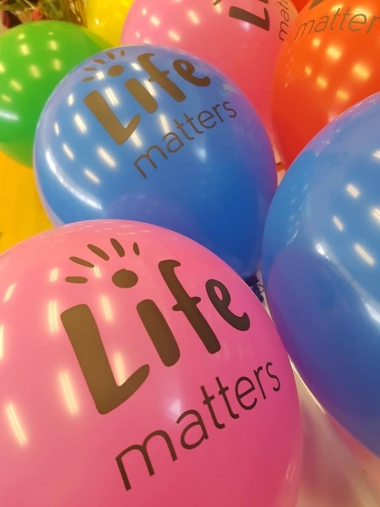
Orphans in South America, former gang members in the U.S. and Botswanan youth have all benefited from a new Australian life skills program using sport and games. This is the third of a series of sport articles exploring the impact of sport on our society.
Sport has always been a powerful tool for changing lives. Apart from the physical health benefits there are a host of ways sport helps us grow. Using sport and games a new life skills program, LifeMatters, is proving it can make a difference to disadvantaged youth.
It has already had an impact overseas and is now being run in Australia.
Sport for empowering students
The University of Queensland Professor Stephanie Hanrahan developed this mental skills training program based from sport psychology research. The aim was to enhance the lives of adolescents living in in situations of social vulnerability.
The program was recently run for the first time in Australia in rural Victoria. Secondary students from an alternate education program took part in ten sessions. These contained games to improve communication, trust, and problem-solving. It developed mental skills such as imagery, self-talk, goal setting, activation control, and self-confidence.
For example, students explored mentally rehearsing situations in their mind. The key in this imagery is to create vivid real-to-life events using all senses. From this imagery training they wrote their own "imagery script" of a situation they wanted to master.
Events included, mastering a parallel park in learning to drive to staying relaxed and controlled when having a tense discussion to shooting for goal in sport. Imagery allows the students to "live" that event in a controlled and positive way in preparation for the real thing.
Why life skills?
According to the World Health Organisation life skills education is an important strategy for mental health promotion. The reason why is that it takes a positive growth mindset rather than a deficit view of fixing a problem.
A deficit view sees people as having weaknesses that need to be avoided or diminished. While life skills focus on developing strengths, skills, and behaviours. It is about growing the skills youth need to promote positive behaviour.
Transferable
The great benefit of developing these positive skills is that they are transferable to other areas of life. Research has shown that former gang members in the U.S. made positive lifestyle changes through the sport and games of LifeMatters.
For example, positive self-talk practiced in games can be used in daily life. The effects of games and mental skills training on Mexican former gang members and drug users' also saw a positive impact on their self-concept, life satisfaction, perceived control, and happiness.
LifeMatters is an example of the positive impact that sport can have on lives. Through transferable skills this program is growing youth that need it most.

More information: https://www.facebook.com/LifeMattersprogram/?fref=ts
Jeremy Dover is a former sports scientist and Pastor
Jeremy Dover's previous articles may be viewed at www.pressserviceinternational.org/jeremy-dover.html